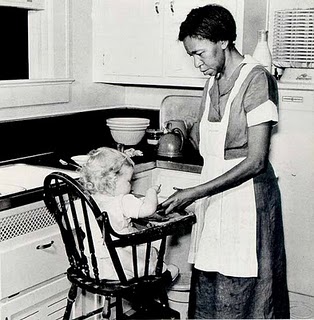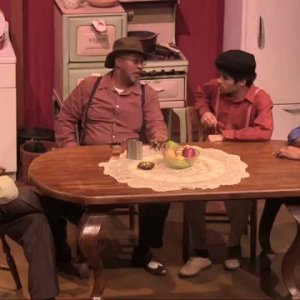
Inconvenient Facts: The Whiteness of Memory in “The Help” Versus the Ugly Realities of Jim and Jane Crow America
Stockett’s novel presented a vision of segregation in service of a feel-good story, but the film version of The Help is even more distant from the virulence of American racism. Its villains, Junior League bigots who wear smart little suits to cover their scales, are so cartoonish that viewers won’t risk recognizing themselves or echoes of their behavior in them.
The heroines—a privileged, liberal, white Mississippi woman named Skeeter Phelan (Emma Stone) and two black domestic workers, Aibileen Clark (Viola Davis) and Minny Jackson (a particularly good Octavia Spencer)—are much easier to identify with. The project that brings them together, a secret oral history of maids’ lives in Jackson, may spotlight the domestic side of racism.
But other than a mention of unenforced minimum-wage laws and a scene of the aftermath of Medgar Evers’ murder, the movie is disengaged with the public legal framework that let white women treat their white servants dreadfully in private. In The Help, whether you’re black or white, liberation’s just a matter of improving your self-esteem.
Like Captain America: The First Avenger and X:Men: First Class, The Helpappears to be one more data point in which the white washing of history and nostalgic memory are ways of dishonestly negotiating racial realities in post-Civil Rights, Age of Obama America.
The rest: http://bit.ly/naiWld









 ... please make yourself at home ...
... please make yourself at home ... 